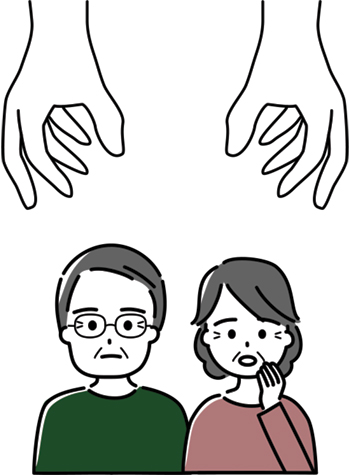
By Gina M. Barry
Partner, Bacon Wilson P.C.
Everyone, regardless of age, deserves to be treated in a way that keeps them safe from physical, emotional, and financial harm. Each year, an estimated 2.1 million people older than 65 fall victim to those who abuse their trust and need. Most abuse of older people occurs in the most private of settings, their home, where abuse is least likely to be recognized by outsiders who could intervene.
They know their abusers
The overwhelming majority of this abuse occurs at the hands of family members, other household members, and paid caregivers. These people have the closest contact with their victims, which puts them in a position to inflict abuse. The physical presence of someone so dependent within a family’s home changes the dynamics of that home, as lifestyles must be adjusted, which can cause additional stress.
Abuse takes many forms
Physical abuse occurs when someone uses enough force to cause unnecessary pain or injury to another, including acts of violence such as striking, hitting with or without a physical object, biting, burning, pinching, restraining, and inappropriate use of drugs. Most people would recognize obvious external signs, such as broken bones, bruises, wounds, and untreated injuries in various stages of healing, but there are more subtle signs that can signal trouble. Broken eyeglasses, depression, lethargy, or a caregiver’s refusal to allow unsupervised visitors could all be signs that abuse is occurring.
Emotional abuse occurs when someone acts in a manner that causes fear, anguish, and emotional distress. Verbal threats, insults, and intimidation are all tactics used by abusers, as well as humiliation or harassment. Subtler means include treatment that makes an older person feel like a child, imposing the “silent treatment,” or isolating them from others.
Neglect occurs when one withholds appropriate attention to meet the physical, social, or emotional needs of a dependent person, whether or not intentionally. Lack of proper hygiene, adequate food, water, clothing, medication, and personal assistance with daily activities are intentional methods of neglect. Unintentional neglect occurs when the dependent person is not given the care that keeps them from harming themselves. Examples include those who are allowed to wander out of their homes and are lost or harmed as a result or who cause fires through unsupervised use of the stove.
When finances are involved
Exploitation occurs when the financial resources of the older person are misused. This can be especially prevalent in situations where caregivers rely on those in their care for their own financial welfare. Often, those being cared for simply do not understand the implications of granting their caregivers’ access to their bank accounts and other assets. Sometimes caregivers use coercion and forgery as the means to exploit financial resources. Unusual banking activity, such as large withdrawals or ATM activity by a homebound person, could signal problems. Signatures on financial documents that don’t match past signatures or documents being drawn up on the older person’s behalf and not at their request should be red flags. In addition, an older person suddenly living in a style or condition that is contrary to what resources suggest, such as unpaid bills, lack of new clothing, or other amenities, could be a warning to outsiders that a problem is occurring.
Limited access is another red flag
Isolation contributes to continued abuse. When outsiders or other family members are kept away, it can be difficult to spot the signs. Often, the person being abused hides the abuse that is inflicted upon them as they feel indebted to their caregiver, believe they have nowhere else to go, or have acute fear that the abuse will worsen if they complain. This reluctance on the part of the abused person to report their own abuse contributes to deeper feelings of depression, isolation, and worthlessness.
Mitigating the situation
Abuse prevention includes regular respite care. When caregivers have relief even for a few hours per week, they are better able to manage the stress that comes along with the responsibility of caring for another person. Social contact is also very important for both caregivers and dependents. When caregivers have the opportunity to vent their concerns and frustrations in a forum that provides sympathy and understanding, tensions are relieved and solutions to problems can be found. The caregiver might also consider working with a geriatric care manager to ensure all care needs are being met and all available resources are being accessed.
Reporting suspected abuse
Those legally obligated to report abuse of older persons include health care professionals, law enforcement, social services representatives, and anyone responsible for a dependent’s care.
Concerned outsiders are under a moral obligation to intervene when abuse is suspected.
Abuse of a person older than 60 living in the community may be reported by contacting protective services either online at https://www.mass.gov/how-to/report-elder-abuse or by phone at (800) 922-2275. Abuse of an older person by a nursing home or hospital should be reported to the Department of Public Health at (800) 462-5540.
Gina M. Barry is a shareholder with the law firm of Bacon Wilson, P.C., Attorneys at Law. She is a member of the National Academy of Elder Law Attorneys, the Estate Planning Council, and the Western Massachusetts Elder Care Professionals Association. She concentrates her practice in the areas of estate and asset protection planning, probate administration, guardianships, conservatorships, and residential real estate. Gina may be reached at (413) 781-0560 or gbarry@baconwilson.com